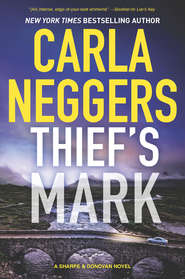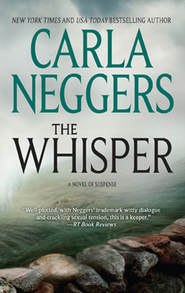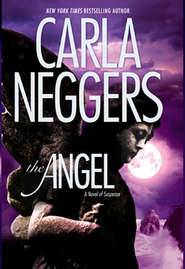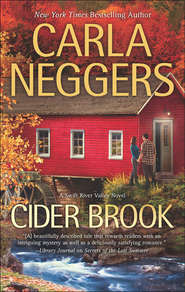По всем вопросам обращайтесь на: info@litportal.ru
(©) 2003-2024.
✖
Wisconsin Wedding
Настройки чтения
Размер шрифта
Высота строк
Поля
She made a tossed salad and warmed up her dinner. Really, what a terrific old maid she’d make. A pity the term was démodé.
The Spinster Gates.
It sounded deliciously forbidding. She turned off Bruce and tried to put her former lover—arrgh, why couldn’t he be less appealing?—out of her mind. Sitting at her kitchen table, she found herself staring at her hands. They were ringless, still soft and pale. She remembered Aunt Ellie’s hands in her final days: old, spotted, gnarled. Yet they’d possessed a delicacy and beauty that suggested she was a woman who’d lived her life on her own terms, a life that had been full and happy. She’d relished her family, she’d had many friends. She’d been generous and spirited and frugal, a model of independence and responsibility.
Once, over a similar supper of leftovers, Nora had asked Aunt Ellie if she ever got lonely. “Of course,” she’d replied immediately, in her blunt, unswerving way. “Everyone does. I’m no different.”
“But…I meant, did you ever wished you’d married?”
She’d shrugged, not backing away from so personal a question. “At times I’ve wondered what it might have been like, but I’ve no doubt a married woman at times wonders what would have become of her if she hadn’t married. But I have no regrets, any more than your mother had regrets about having married your father. I know and have known many wonderful men. I just didn’t care to marry any of them.”
“What about children?” Nora had asked.
Aunt Ellie had laughed. “My word, Tyler’s filled with children. Always has been. You know, I believe sometimes when you don’t have children of your own you’re better able to appreciate other people’s. You can do things for them and with them that their parents simply can’t. You can enrich their lives. You don’t worry about the same things. To be honest, Nora, I’ve never had the urge to bear children myself. I know that’s hard for some people to believe, but it’s the truth. But I’ve enjoyed having children in my life.”
Indeed she had. Even before she’d come to live with Aunt Ellie when she was thirteen, Nora had loved her visits to the twenties house a few blocks from Gates Department Store. They’d bake cookies, go to museums, arts and crafts festivals, libraries. Aunt Ellie had taught her how to manage money and had instilled in her a sense of independence and confidence that continued to stand her in good stead.
She was stronger than she’d been three years ago, Nora reminded herself. She’d had time to adjust to the loss of Aunt Ellie and to becoming sole owner of Gates. She knew herself better. She knew that if Aunt Ellie had never yearned in any real way for marriage and children, she herself occasionally would. Every now and then, a man would even come along who tempted her.
She would survive Byron’s reappearance in Tyler.
Once, of course, she’d figured out what he was up to.
Feeling a little like Agatha Christie’s Miss Marple, Nora finished her supper and made her plans.
* * *
AFTER HASTILY REMOVING himself from Nora’s house, Byron parked in the town square, put a quarter in the meter—which miraculously allowed him a full hour to mosey around—and found his way to the Tyler Public Library. It was located in a particularly beautiful, if run-down, turn-of-the century home. Given his own upbringing in a Federal-period town house and a center-chimney cottage on Nantucket Island, Byron found the preponderance of Victorian, Craftsman and Prairie architecture in Tyler refreshing.
Inside the library, which was old-fashioned and in desperate need of renovation, he tried not to draw attention to himself as he made his way to a stack of recent copies of the Tyler Citizen. He sat at an oak table in a poorly lit corner. Deliberately and patiently, he skimmed each edition of the daily paper, backtracking several weeks until he found the front-page article announcing the discovery of a skeleton at Judson Ingall’s Timberlake Lodge. The grisly discovery had been made when local construction chief Joe Santori and his crew struck the body with a backhoe while doing some excavation work; Cliff Forrester, the lodge caretaker, was called onto the scene. Apparently Liza Baron, Judson’s granddaughter, was also up at the lodge at the time. According to the paper, Judson himself hadn’t stepped foot on the property since his wife left him more than forty years ago.
Liza Baron.
Byron rolled the name around on his tongue and tried to remember. But no, he didn’t recall a Liza Baron from his first visit to Tyler. He remembered Judson Ingalls, though. A taciturn, hardworking man, he was one of Tyler’s leading citizens, owner of Ingalls Farm and Machinery. As Byron recalled, Judson’s wife had been a Chicago socialite, unhappy in a small Wisconsin town.
Now why had he remembered that little tidbit of Tyler lore?
“Aunt Ellie,” he whispered to himself.
In their long talks on her front porch, Ellie Gates had told Byron countless tales of the legions of friends she’d had over her long, full life. She’d mentioned Judson Ingalls’s wife. “Margaret was a fish out of water here in Tyler, but we became friends, although she was somewhat younger than I. I’m afraid she didn’t have too many friends here in town. A pity. She was such a lively woman. Of course, some of that was her own doing—but it wasn’t all her own doing. In a small town, it’s easy for people to develop a wariness of strangers, of outsiders.” And she’d paused to give him a pointed look, as if she knew he was another outsider who’d fallen for a Tyler resident. “It’s also easy for out-of-towners to act on their prejudices and figure a small town has nothing to offer, including friends.”
Ellie Gates had believed in tolerance. She’d been an opinionated woman herself and forthright in stating her views, but she appreciated fresh thinking, a good argument and people’s right, as she liked to put it, “to be wrong.”
Her grandniece and sole heir was a good deal more stiffnecked. Nora Gates much preferred to deal with people who agreed with her.
Flipping back through the newspapers, Byron caught up with all the current Tyler news, as well as fresh developments regarding the body. He gathered that its presence at Timberlake Lodge had fueled much speculation in town. Without directly stating as much, the paper gave the clear impression that some townspeople believed the body was that of Margaret Alyssa Lindstrom Ingalls herself. Now all the authorities had to do was get busy and confirm that fact, and prove how she’d ended up buried at her husband’s lodge.
So for the past five years, Byron thought, his one and only brother had been living right on top of Tyler’s greatest unsolved mystery. Given all the horrors Cliff had witnessed in Southeast Asia, how had he reacted to finding a dead body under his feet? He’d come to Tyler to escape death and destruction.
He’d fallen in love, was what he’d done.
Byron shrugged. There was a certain logic in that, he supposed.
At one point, the Citizen had printed a grainy picture of Liza Baron, for no solid reason Byron could figure out except that she was Judson Ingall’s granddaughter and had finally come home. So this was the woman his brother planned to marry. She was attractive in a dramatic, grab-you-by-the-short-hairs way. Byron guessed that she would be bold and direct with her loves and hates.
A few days later, the paper had dredged up an old photograph of Margaret Ingalls. Apparently she’d been quite the party animal. Putting the two photos side by side, Byron saw a strong resemblance between grandmother and granddaughter.
There was no picture of Cliff. No quotes from him, as there had been from Joe Santori, about having discovered the body. “Cliff Forrester couldn’t be reached for comment,” the paper said. Which might have meant anything from they couldn’t find him to he’d chased them off with a shotgun.
Byron suddenly wished he hadn’t agreed to sneak into Tyler and play scout for his mother—or for himself. He’d done that once, completely on his own, with disastrous results. There were too many unknowns. Cliff’s being involved with a Tyler woman Byron had anticipated. And he’d have to have been a complete idiot not to know he was in for a fight with Nora Gates. But a dead body? A dead body that could belong to the grandmother of his future sister-in-law?
Best, he thought, to hold off for a bit before phoning his mother in London and reporting the news.
But that wasn’t what was really eating at Byron and he knew it.
He was bothered by the big unknown, the one that had gnawed at him for three long years. How would he react if he ever saw Nora Gates again?
He shoved the newspapers back where he’d found them and left the library, walking quickly to his car. It was fully dark now. Cold. There was a stiff breeze. The square was quiet. Byron already had his car door open, but he shut it softly. He had another five minutes on his meter.
After crossing the street, he walked down to Gates Department Store, a fixture on Tyler’s square since Ellie Gates had opened the three-story building in the Roaring Twenties, using an unexpected inheritance from an uncle back East. People had been surprised she’d risked her money on a business venture instead of putting it safely in the bank so she could lead a ladylike life. They’d doubted she’d be able to stay in business, never mind make enough profit to fill three floors with merchandise, or attract enough customers from Tyler and surrounding communities to support a full department store. But she’d proved them wrong, her sense of style, service and tradition finding a large and loyal following.
Gates closed at six o’clock, except for Thursdays and Fridays when it stayed open until nine. Its widow displays were often mentioned in Wisconsin travel guides, regional magazines and newspapers, a “must see” in Tyler. They were Nora’s brainchild. Aunt Ellie had done the usual perfunctory displays, but not her grandniece. Nora’s were elaborate and creative, playing on the history and charms of her corner of the Midwest.
The current display featured Halloween, complete with witches, pumpkins, black cats and skeletons, but also a touch of whimsy: two figures, a boy and girl, dressed as children of Swedish immigrants, bobbing for apples in a wooden bucket; a puppy stealing a caramel popcorn ball from an overflowing bowl; a cheerful-looking ghost peering out of a closet. It was a montage of scenes that were warm, nostalgic, funny, spooky. Busy owner of Gates or not, Byron thought, Nora had to have been personally responsible for such an imaginative window.
A gust of Canadian air went right through his slouchy jacket and chamois shirt. But instead of moving along the street, Byron remained in front of the department store window, staring at the children bobbing for apples, trying not to remember….
A hot, muggy August afternoon, his first in Tyler. Byron hadn’t come to Wisconsin to take pictures. For him, then, photography was only a hobby. He’d come to see his brother. Cliff had retreated from society two years before and Byron wanted to reassure himself that his brother was alive, functioning, living a life he needed to live, on his own terms. For Cliff’s sake, Byron had come to Tyler un-announced, on the sly, without fanfare. He didn’t want to do anything—anything—to upset the precarious balance his brother had established for himself. But if Cliff needed him, if he was in any danger of hurting himself or anyone else, Byron felt he had to know. If necessary, he would have intervened.
His first stop in Tyler had been the square, his first stop on the square, Gates Department Store. He’d wanted to get a feel for the town in which his brother had taken up residence, if as a recluse.
Nora had been in the window, working on a back-to-school display that featured Tyler’s original settlers heading across the fields to their one-room schoolhouse. Already Byron had been feeling a little better about where his brother had landed. Tyler, Wisconsin, wasn’t a weird, gritty, hole-in-the-wall town where he’d find Cliff living in some gutter. It was picturesque and homey, a real community, with farms, businesses, schools, a hospital, a sense of history and pride. The people ran the gamut from the working poor to the well-to-do; it wasn’t just an upper-class or a working-class town. Those things mattered to Byron, although, even now, he couldn’t have said why.
Nora had worn her hair longer then. With a thick braid trailing down her back, and wisps of ash-blond hair poking out, she’d looked as old-fashioned and fresh-faced as her nineteenth-century figures.
She’d spotted him and smiled politely. He could tell she’d already pegged him as a stranger.
That night, pretending to be a free-lance photographer, he’d had dinner with her and Aunt Ellie at their twenties house a couple of blocks from the square. Things had snowballed from there. Although still technically the sole owner of Gates Department Store, Ellie Gates was ninety and in failing health, and left most of the day-to-day management up to her grandniece. And, to his delight, Byron had discovered that Nora was hardly an eighteen-year-old kid. In fact, she was thirty, unmarried and determined to stay that way. He’d admired her independence, her spirit, her energy, her devotion to her hometown and her sense of humor and tolerance. He hadn’t, however, expected to fall in love with her.
He hadn’t guessed she was a virgin. And she hadn’t told him until the last moment, in the tent at the lake outside town where he’d camped. Afterward, she’d insisted she had no regrets. It might not even have been a conscious lie. Byron’s own regrets had nothing to do with making love to Nora Gates, of having loved her and dreamed of having a life with her, but everything to do with having himself been so damned blind to what was going on in her life. He’d been preoccupied with his own problems—Cliff, their father, his own pain and guilt over their suffering. He hadn’t seen, until it was too late, that Nora Gates was letting go of the last person she had in the world, a woman who’d meant everything to her. That Aunt Ellie was ninety and had never pretended she’d live forever wasn’t the consolation Byron, in his blindness, had anticipated. She had been a force in Nora’s life, and Nora had been trying to find a way to carry on without her.
Вы ознакомились с фрагментом книги.
Приобретайте полный текст книги у нашего партнера:
Приобретайте полный текст книги у нашего партнера:











